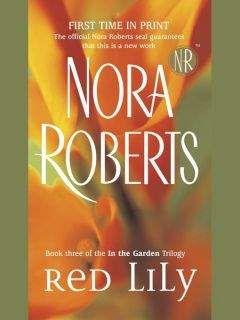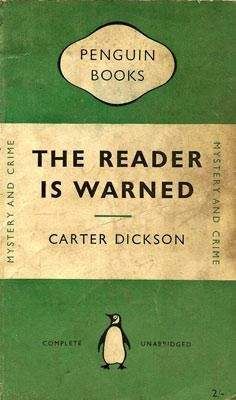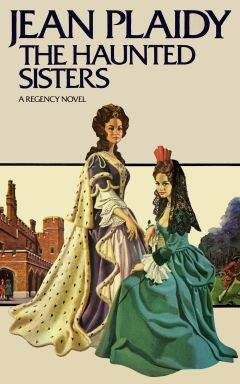John Carr - The Plague Court Murders
Pauses and mutterings; witness pressed to go on.
A.Well, all I can say is that I should like to have seen that fight. Dean's the fastest amateur middleweight I ever watched. I saw him flatten Tom Rutger....
This sudden splash f honesty, I could see, brought the young man up in Masters' estimation. The questioning went on rapidly. Darworth, it seemed, had plunged almost at once into occult matters. At Joseph's first seance there was mention of the uneasy ghost' at Plague Court, and the spiritual agonies of James Halliday. When this was mentioned to Darworth, he had grown more interested and disturbed; had many long conferences with Marion Latimer and Lady Benning, "especially Marion"; had
borrowed Halliday's account in the form of the Playge letters; and, at the insistence of Lady Benning, the experiment was to be tried. Perhaps Masters made a mistake in dwelling too long on this. In any event, Ted had time to work himself into his old state of fanaticism. What loomed always larger, and swelled and assumed monstrous shapes, was the smiling figure f Darworth. It mocked us after death. We felt and fought, but could not break, the uncanny power he had exercised over these people: the grim old woman with her spites and dreams, the unstable young man sitting in the chair and glaring back at Masters.
The struggle grew, as question after question was flung at him. On one point, that boy was definitely mad. He rubbed his grimy face, he struck the arm of the chair; sometimes he laughed and sometimes he almost sobbed; as though it were Darworth who was the true ghost, standing at his elbow and prodding him to hysteria, in those chill hours before dawn. Masters was calling for full stage-thunder now.
Q. Very well! If you don't believe Darworth was killed by a human being, what have you to say to Joseph Dennis' statement that Darworth did fear somebody here - in this house - feared harm?
A. I say it's a damned lie. Are you going to take the word of a damned drug-addict?
Q. So you knew he was a drug-addict, did you?
A. I thought he might be.
Q. And you still believed in him?
A. What difference does that make? It didn't affect his psychic powers. Can't you see anything? A painter or composer doesn't lose his genius because of drugs or alcohol. God damn it, are you blind? It's just the opposite.
Q. Steady, sir. Do you deny that one of the people in that front room might have got up and gone out while you were all in the dark. Do you deny it? A. Yes!
Q. You will swear that nobody did? A. Yes!
Q. What if I told you that a chair was heard to creak in there, and the door open or close?
A. (Slight hesitation). Whoever says that is lying.
Q. Careful, now. Are you sure?
A. Yes. We might have shifted round in our chairs. Creakings! What's that, anyway? You sit in any dark room, and you'll hear plenty of creakings.
Q. How close were you sitting together?
A. I don't know. Two or three feet apart, maybe.
Q. But you did hear noises of some kind? So that one person might have got up, on a stone floor, and gone out without attracting attention?
A. I've just told you that nobody did.
Q. You were praying?
A. Rot! Absolute rot, like everything else. Praying! Of course not. Do I look like a pious Methodist? I was trying to establish communication to give, power to a mind exorcising the earthbound. I was focusing, as powerfully as I could. I-I could feel my brain almost bursting. Praying!
Q. In what order were you sitting; how arranged?
A. I'm not positive. Dean blew out the candles, and we were all standing up then. Then we started groping after the chairs that were already there. I was on .the extreme left of the fireplace, that's all I know. We were all flurried.
Q. But didn't you notice when you heard the bell, and you all got up again?
A. No. There was a lot of milling about in the dark. It was old Featherton who lit the candles, and he was swearing. The next thing I knew we were all going towards the door. I don't know who was where - or anything about it.
Masters let him go then. Masters offered to let him go home; but, although he was patently exhausted and on the verge of breaking-down, he refused to go until the others had gone.
The inspector brooded, his head in his hands. "It's a worse muddle yet," he said. "They were all exalted or hysterical, or something. If we can't get any clearer evidence than that. .." He wriggled his fingers, cramped from the note-taking, and then wearily told the constable to send in Major Featherton.
The examination of Major William Featherton, retired, 4th Royal Lancashire Foot, was very brief, and not till the end did it seem to grow informative. The major's earlier pompous manners were gone, and his rolling diction subdued into sharp, concise replies. He sat straight in his chair, as though at a court-martial; the eyes under the down-pulled, grizzled brows fixed Masters bluntly, and his words were interrupted only when he cleared his throat, or leaned his head on one side to brush his neck with a handkerchief. I noticed that, aside from Lady Benning, he was the only person there with clean hands.
He explained that he had known Darworth only slightly; that he was drawn into the affair only through his friendship for Lady Benning; that he saw and knew little of the man. He knew of nobody who had a definite animus against Darworth, though he understood the man had not been generally liked, and had been blackballed from several clubs.
Q. Now, about tonight, sir
A. Ask anything you like, Inspector Masters. I'm bound to tell you that your suspicions are nonsense, but I know your duty and mine.
Q. Thank you, sir. Exactly so. Now, how long should you say you were sitting in the dark?
A. Twenty to twenty-five minutes. I several times looked at my watch. It has a luminous dial. I wondered how long the foolery would go on.
Q. Then you were not concentrating, or anything? A. No.
Q. Then didn't your eyes get accustomed to the dark, so you could see?
A. It was confoundedly dark there, Inspector. And my eyes - not strong these days, confound it. No, I couldn't see much. Shapes, maybe.
Q. Did you see anybody get up?
A. No.
Q. Did you hear anybody? A. Yes.
Q. Ah, just so. Please describe what you heard.
A. (Slight hesitation). Hard to do. Naturally, at first, there was a lot of settling round and creaking in chairs. It wasn't that. It was more like somebody pushing back a chair a little, a scraping. Didn't notice it much, I'm bound to tell you. Later I thought I heard somebody's footstep somewhere. Hard to judge sounds in the dark.
Q. How much later?
A. I don't know. Fact is, dye see, I was going to call out and say `Hey!' But Anne - Lady Benning - had driven it into us that nobody was to speak or move no matter what happened. We'd all to promise that. First off, I thought `Somebody sneaking out for a cigarette.' Damned rummy thing to do, though, I thought. Then I heard a squeak out of the door, and felt a draft.
Q. As though the door had been opened?
A. (The witness here had a fit of coughing, and paused). Look here, say more as though the big door-the front door, d'ye see - opened. Not much draft in that hall to begin with. Wouldn't like to say, though. Now, see here, Inspector, I'm bound to tell you the truth. But, as a sensible man, come! You know yourself that it don't mean a tinker's curse, a thing like that. Somebody went out, and now is afraid to admit....
The major here for the first time was definitely perturbed, as though he had given the wrong impression or said more than he intended. He attempted to cover it up by pointing out that there were any number of noises in the dark; that he might have been mistaken on some of them. After some sharp wrangling, Masters dropped the point. I think he felt a shrewd suspicion that Featherton, in a coroner's court, could easily be made to swear to this again. He went on, swiftly to the question about the arrangement of chairs.
A. Lady Benning sat where she's been sitting: right hand side of the fireplace. Funny, too. I wanted to sit beside her, to - well, I wanted to sit there, but she pushed me away. Young Halliday sat down there. I know, because I almost tumbled in his lap. Ha. They'd blown out the candles, then, dye see, and I had to grope along. Miss Latimer was sitting beside him. I got the next chair. I'm pretty certain young Latimer was just the other side of me. He hadn't got up.
Q. When you heard this noise, which direction did it come from; the noise of the chair being scraped back?
A. Confound it, I told you you can't place noises in the dark! Might have been anywhere. Mightn't have been at all.
Q. Did you feel anybody brush past you? A. No.
Q. How far were the chairs apart? A. Don't remember.
The candles were almost burnt out by now. One of them leaped into a broad sheet of flame, wabbled, and puffed out just as the major rose from his chair.
"All right," Masters said dully. "You're free to go home if you like, major. I should suggest that you take Lady Benning. Of course, you must hold yourself in readiness for further questioning.... Yes. And please ask Miss Latimer and Mr. Halliday to come in. Oh, I won't detain them five minutes unless something turns up, um, important. Thanks, ah, thanks. Most helpful."
Featherton stopped in the doorway; and the constable stepped forward and handed him his hat, rather as though the major had just finished a victorious street-fight. It was a silk hat, which he brushed with his sleeve while he peered about the room. For the first time he seemed to observe me; I was sitting on a window-sill over in the gloom. Major Featherton puffed out his blue-veined cheeks. Fitting on he hat somewhat rakishly, he gave it a pat on top, and said:
"Ah, Mr. Blake! Yes, of course ... Mr. Blake, would you mind telling me your home address?"
I told him, subduing curiosity.
"Ah, yes, the Edwardian House, yes. If it's convenient, I'll call on you there tomorrow. Good night, gentlemen, good night."
Settling his coat on his shoulders with an air of mystery, he stalked out, and almost bumped into Sergeant McDonnell coming in.
XI
THE HANDLE OF A DAGGER
McDONNELL looked harassed, and there were sharp lines of fatigue drawn slantwise under his eyes. In one hand he carried a bundle of penciled notes, and in the other a big lantern which he set down on the floor.
For the first time I realized how chill it was in the room, how sleep was stiffening my eyelids and joints, how for the last half hour sounds had been dwindling in the yard outside until it was now silent. Voices and footsteps had passed; the gears of a car ground far away. It was the dead, misty hour when you could smell dawn in the air. The street-lamps still burned, but there were already faint stirrings from the city.
McDonnell's lantern made a cartwheel of light on the brick floor. It wove a little before my eyes; and above it was the sergeant's ugly, sharp-nosed, whimsical face. His greenish eyes contemplated Masters, who was sitting with knuckles pressed against forehead. McDonnell's hat' was plastered on the back of his head, and one strand of hair waved out grotesquely over his eye. He clinked his foot against the lantern to rouse Masters.
He said: "How much longer do you want me to carry on, sir. They've all gone now. Bailey said he'd be back for those pictures as soon as it was light."
"Bert," said the inspector dully, without looking up, "you had a line on Darworth. Who's Elsie Fenwick?"
McDonnell jumped a little. "Elsie-?"
"For God's sake don't tell me you don't know! I know the name; I know it's connected with Darworth, and also with funny business; but I can't remember how. You were right; we got it from Featherton. The first line on that paper was, `I know where Elsie Fenwick is buried."'
"What ho!" said McDonnell, and opened his eyes. He remained staring at the candles for so long that Masters slapped the work-bench. "Sorry, sir. But it's pretty significant, you see. It's a confirmation of funny business right enough. Elsie Fenwick," he said grimly, "is the reason why our people became interested in Darworth to begin with. That was sixteen years ago, and long before my time; but I got it out of the files when I was digging back on Darworth. It's been pretty well forgotten, but it was the bad odor of it that stirred up Number 8 Office when they heard Darworth was playing about with the occult. . . . Elsie Fenwick was Darworth's first wife."
"Got it!" said Masters abruptly. "Ha. Yes, certainly. I've got a notion I remember that case. Elsie Fenwick was the old woman, the very wealthy one, eh? She died, or something like that—“
"No, sir. At least, they tried to prove she was dead, and it would have been rather rough on Darworth if they had. She disappeared."
"Facts," said Masters. "Out with it. Story briefly. Come, now!"
McDonnell got out his notebook and leafed through it. "H'm. Dar - oh, yes. Elsie Fenwick was a romantic old girl, tied up with spiritualism, filthy rich, and no relations. She had a splay foot or shoulder, something to do with the deformity of the bones. At the tender age of sixty-five she married young Darworth. That was before the Married Woman's Property Act, so you can see what happened. Then the war came along. Darworth ducked out to avoid military service; he took his blushing bride, and a maid of hers, to Switzerland.
"One night about a year later, distracted husband phones doctor ten miles away. Wife taken with a seizure; afraid she's dying; explains carefully she has been troubled with gastric ulcers. Mrs. Darworth was tough, apparently, and was still alive when the doctor got there. By a stroke of luck, this chap was as shrewd as they make 'em, and also knew his business better than the distracted husband had hoped. He pulled her through, then had a talk with Darworth. Darworth said: 'Horrible. Gastric ulcers.' The doctor said, 'Tut, tut.' He looked Darworth in the eye and said, 'Arsenic poisoning."'
McDonnell lifted a sardonic eyebrow.
"Not as smooth," grunted Masters, "as he became afterwards, eh? Go on."
"There was trouble. A nasty scandal was only averted by the maid - Elsie Darworth's maid-swearing the old woman had swallowed arsenic herself."
"Ah! The maid. Good-looking girl?"
"I don't know, sir, but I rather doubt it. Darworth was too clever to play about when there was no cash in it."
"What did the wife say?"
"Nothing. She stood by Darworth; or forgave him, anyhow. That's the last we hear of them until the end of the war. They returned to England and settled down. One day Darworth, distracted again, walks in to our people and informs them that his wife has disappeared. They had a country place out Croydon way; the wife, according to Darworth, had simply taken a train to town to do some shopping, and never come back. He had a doctor's report to prove she had .been suffering from fits of melancholia, depression, and possible amnesia - he was learning. At first the Yard let it go at that, and instituted the customary missing-person inquiries. But somebody had a suspicious mind; dug into the past, found the arsenic-episode; and then there was trouble... I'll send you up the full report, sir; it's too long to go into now. The only result was that they never proved anything.... Masters hammered his fist slowly on the desk. He peered round at me.



